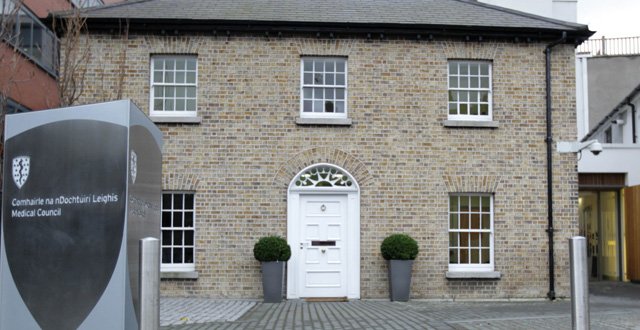
Dr Muiris Houston takes a look at the new workforce report from the Medical Council and finds it difficult to believe the recruitment crisis will be solved anytime soon
The massive scale of the workforce challenges facing the health service was underlined by a new report published recently by the Medical Council. It said the healthcare system has an over-reliance on doctors who are trained overseas and is facing challenges in recruiting and retaining Irish graduates.
The
depth of medical emigration is reflected in the report’s finding that more than
2,800 doctors withdrew from the medical register between 2015 and 2017. The
main reasons cited by doctors for leaving the register included lack of respect
by senior colleagues, workplace understaffing, and excessive working hours.
That
one-quarter of those who left the register left the specialist division is
truly shocking. These are doctors qualified to consultant level. It means we
are now losing our doctors at every stage of their careers. The report takes a
deep dive into the reasons why people left the medical register. These reasons
include:
Tired of being expected to carry out too
many non-core tasks;
A lack of respect by senior colleagues;
Lack of flexible training options;
The chance to earn more money abroad;
Family/personal reasons for making a
voluntary withdrawal from the register;
Changing to a role that doesn’t require
being registered with the Medical Council;
Lack of employer support in work;
Workplace understaffing;
Perceived poor-quality training
available;
Working hours expected too long; and
Limitations in career progression
opportunities available.
If there
was any doubt about how difficult our health system is to work in, then the
finding that we are now losing doctors who have travelled to Ireland to work
here but who don’t like what they are experiencing and are voting with their
feet, should remove any uncertainty.
And the
reference to better earning opportunities abroad is clearly related to the
inequitable policy of paying new consultants 30 per cent less than colleagues
hired before 2012 and doing the same job. Until this is reversed, the 500 empty
posts across the country will remain unfilled and patients will continue to
wait even longer for proper assessment and treatment.
It is
one of the main reasons why over 540,000 people are awaiting an outpatient
appointment with a hospital consultant and a further 70,000 patients are
awaiting inpatient and day case surgical appointments.
Commenting
on the report, the IHCA made the point that the failure to restore pay parity
is a false economy, as the current recruitment crisis leads to longer waiting
lists, which causes medical conditions to deteriorate. This in turn means a
higher number of emergency admissions, longer lengths of stay and poorer
patient outcomes. The vicious circle continues with higher costs being incurred
on agency contracts, State Claims Agency clinical indemnity claims and NTPF
outsourcing.
In the
survey, doctors in trainee positions built a complex picture of poor working
conditions, teaching, employer support, training, lack of career progression
routes, excessive working hours and non-core tasks, linked to frustration with
the system and significantly, a powerlessness to contribute to change. To their
credit, trainees highlighted patient safety concerns, with questionable
standards of patient care expressed by respondents.
Medical
Council president Dr Rita Doyle put her finger on what is the most fundamental
issue with our health service: Cultural challenges within the Irish health
system need to be addressed in order to reverse the growing problem of doctor
retention, she said.
And the
same can fairly be said about nurses and other healthcare professionals. Until
such time as the rotten culture is dealt with, I fear isolated solutions are
likely to flounder.
And so
while the decision by the Irish Nurses and Midwives Organisation (INMO) to
recommend acceptance of a revised Labour Court proposal on pay and staffing
issues is welcome, it cannot solve recruitment and retention issues on its own.
Significant
pay improvements, which offer the hope of better nurse retention as well as a
carrot to attract home nursing graduates who have opted to work abroad, will
not work without concomitant culture change.
In a
similar vein, a negotiated agreement between the IMO and Government may help
stem the tide of GP graduate emigration. By reversing substantial FEMPI cuts
introduced at the height of the financial crisis, the deal should provide financial
stability for practices. It may also make the many vacant GMS posts around the
country more attractive to applicants, including those who have moved abroad to
work.
It
should, but will it? I have my doubts. So many years of distrust and
abandonment means Irish GPs will find optimism a difficult sentiment to find.
It’s
going to take years to turn around the behemoth that is our dysfunctional
health system.





Leave a Reply
You must be logged in to post a comment.